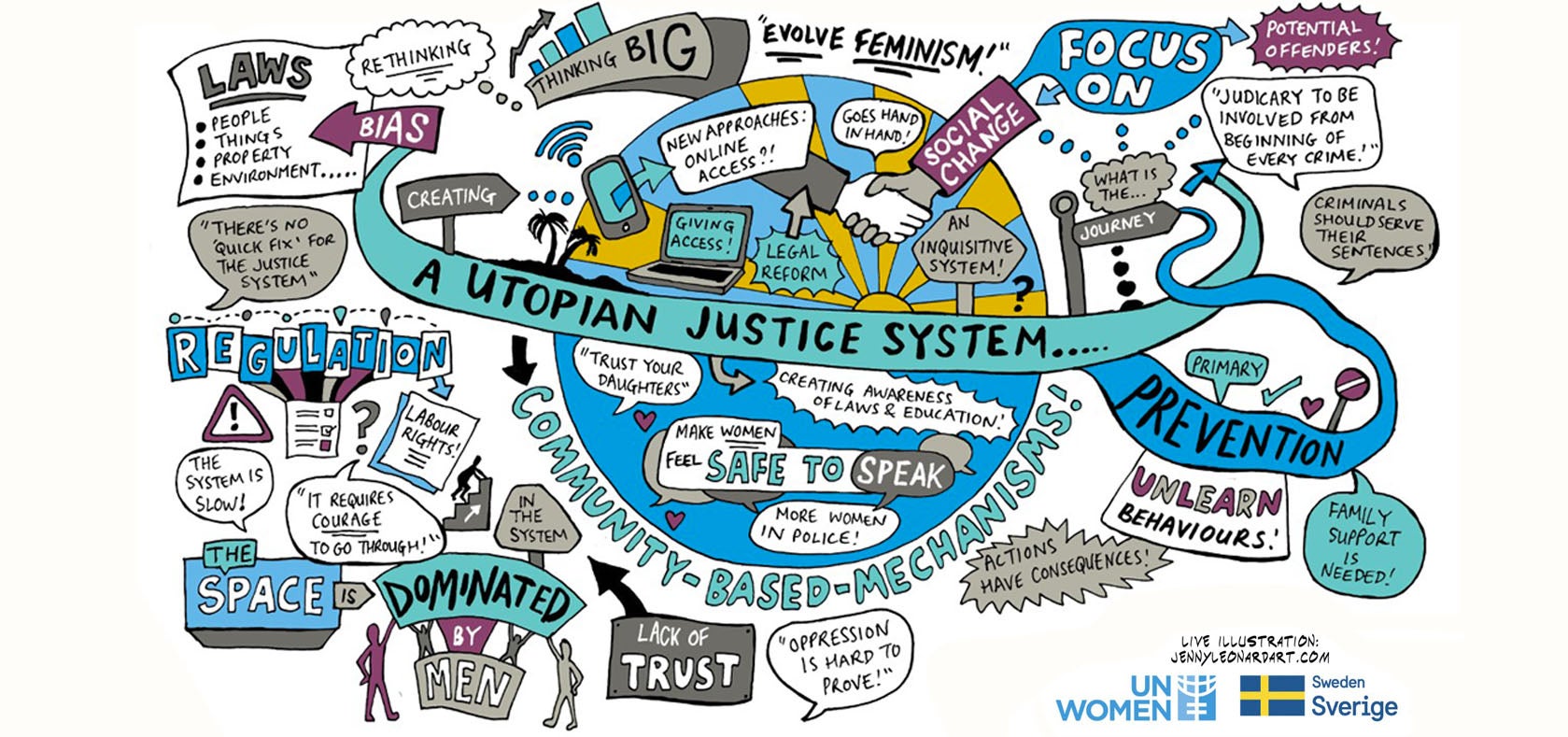Ensuring justice for all: a utopian justice system designed by women journalists from Asia and the Pacific
Date:
Author : Fanny Arendt


What would a utopian justice system look like? This was the question asked of participants from across Asia and the Pacific in an online consultation with women journalists. Their answer: a system that is people-centred and responsive to gendered needs. In the course of their reporting from different countries, journalists shared that they are witnessing and writing about similar issues in the justice chain. To overcome barriers posed by an overburdened and outdated system, participating journalists assured commitment to continue using the power of the pen to support a justice-sector reform that ensures justice for all.
“With formal justice systems overburdened and billions of people who don’t have access to meaningful remedies to claim their rights, we need to rethink how justice is delivered,” said Doreen Buettner, programme specialist on access to justice with the UN Women Regional Office for Asia and the Pacific. “There is no quick fix, but we need a long-term strategy developed together with civil society, governments, justice providers, thematic experts, development partners and UN sister agencies.”That change is needed is also recognized by women journalists reporting on gender and justice issues from Asia and the Pacific. In the online consultation on justice-sector reform, attending journalists learnt that 5 billion people cannot access justice today and shared that many justice systems appear not to have been built to serve women and their needs.
”The judiciary is a male-dominated sphere where not enough women are involved,” said Pakistani journalist Lubna Jerar. “Reforms need women who know the legal and social barriers that women face.”
Dikshya Awasthi, a journalist from Nepal, echoed this sentiment and added that accessing justice is particularly hard for women survivors of violence. “In Nepal, only a few rape cases lead to conviction. Justice is not being delivered to women, and criminals are given impunity.”
With the right methods, however, existing barriers for women’s access to justice can be torn down, or at least mitigated. In the journalist consultation, examples were given on how prevention of rights violations, standardization of justice mechanisms and implementation of a people-centred approach can ease the roadmap to justice for women. Participating journalists also emphasized the need for social norms change, a process that goes hand-in-hand with evolving approaches to accessing justice.
“Due to COVID-19 lockdowns, the application of technology has been pushed to the forefront. If made safe and accessible for women to use, legal technology can help women toconnect with relevant service providers who can help solving their problems,” Jerar stated.
Journalists from the region acknowledged that policy and legislative reforms alone are not enough to advance the women’s rights agenda, but rather that they need to be accompanied by changes in people’s mindsets. In the consultation, journalists shared that they feel a joint responsibility to challenge gender stereotypes and continue reporting on legal issues from a women’s rights perspective.
“I think journalists have an important role to play by covering rights violations including gender-based violence,” said Ruhina Ferdous, a Bangladeshi journalist. “Accurate and sensitive media coverage can help identify gaps in existing justice mechanisms, change perceptions and advance positive change.”
The two-hour consultation was characterized by vivid discussions on what is needed to realize a utopian justice system and how journalists can help bring about positive change. As visualized through an art illustration and emphasized in the consultation, women journalists are committed to use their skills to advance women’s rights. In the process, the journalists developed several slogans to promote women’s rights and the overall goal of justice for all.
“
Justice without access is criminal
Justice for women, justice for all
No justice without justice for women!
Justice isn’t yours to give her: it’s her basic human right
Access to justice paves the way to herstory.
You cannot have justice or freedom without women!
Ensure justice beyond bars
Let Lady Justice hear us: women voices against injustice.
The gendered scale: unequal access to justice for one is injustice to everyone.
Women's access to justice = a step towards an equal world
”